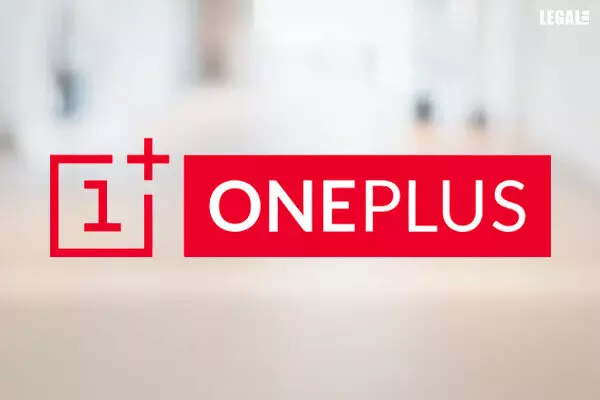- Home
- News
- Articles+
- Aerospace
- Artificial Intelligence
- Agriculture
- Alternate Dispute Resolution
- Arbitration & Mediation
- Banking and Finance
- Bankruptcy
- Book Review
- Bribery & Corruption
- Commercial Litigation
- Competition Law
- Conference Reports
- Consumer Products
- Contract
- Corporate Governance
- Corporate Law
- Covid-19
- Cryptocurrency
- Cybersecurity
- Data Protection
- Defence
- Digital Economy
- E-commerce
- Employment Law
- Energy and Natural Resources
- Entertainment and Sports Law
- Environmental Law
- Environmental, Social, and Governance
- Foreign Direct Investment
- Food and Beverage
- Gaming
- Health Care
- IBC Diaries
- In Focus
- Inclusion & Diversity
- Insurance Law
- Intellectual Property
- International Law
- IP & Tech Era
- Know the Law
- Labour Laws
- Law & Policy and Regulation
- Litigation
- Litigation Funding
- Manufacturing
- Mergers & Acquisitions
- NFTs
- Privacy
- Private Equity
- Project Finance
- Real Estate
- Risk and Compliance
- Student Corner
- Take On Board
- Tax
- Technology Media and Telecom
- Tributes
- Viewpoint
- Zoom In
- Law Firms
- In-House
- Rankings
- E-Magazine
- Legal Era TV
- Events
- Middle East
- Africa
- News
- Articles
- Aerospace
- Artificial Intelligence
- Agriculture
- Alternate Dispute Resolution
- Arbitration & Mediation
- Banking and Finance
- Bankruptcy
- Book Review
- Bribery & Corruption
- Commercial Litigation
- Competition Law
- Conference Reports
- Consumer Products
- Contract
- Corporate Governance
- Corporate Law
- Covid-19
- Cryptocurrency
- Cybersecurity
- Data Protection
- Defence
- Digital Economy
- E-commerce
- Employment Law
- Energy and Natural Resources
- Entertainment and Sports Law
- Environmental Law
- Environmental, Social, and Governance
- Foreign Direct Investment
- Food and Beverage
- Gaming
- Health Care
- IBC Diaries
- In Focus
- Inclusion & Diversity
- Insurance Law
- Intellectual Property
- International Law
- IP & Tech Era
- Know the Law
- Labour Laws
- Law & Policy and Regulation
- Litigation
- Litigation Funding
- Manufacturing
- Mergers & Acquisitions
- NFTs
- Privacy
- Private Equity
- Project Finance
- Real Estate
- Risk and Compliance
- Student Corner
- Take On Board
- Tax
- Technology Media and Telecom
- Tributes
- Viewpoint
- Zoom In
- Law Firms
- In-House
- Rankings
- E-Magazine
- Legal Era TV
- Events
- Middle East
- Africa
DCRDC Holds OnePlus Liable For Failure To Provide Spare Parts For Complainant’s TV set

DCRDC Holds OnePlus Liable For Failure To Provide Spare Parts For Complainant’s TV set
Directs the company to compensate the aggrieved party by paying Rs.68,000
The Ernakulam, Kerala bench of the District Consumer Disputes Redressal Commission (DCRDC) has held OnePlus liable for deficiency in services.
The bench headed by D.B. Binu (President), V Ramachandran (member) and Sreevidhia TN (member) stated that the company failed to provide necessary spare parts for the product to address the defects.
The complainant ordered a OnePlus TV set from Flipkart. Soon after it had display issues. On contacting the Customer Care department of OnePlus, a technician identified the need for a panel replacement. However, despite numerous follow-ups for over a month, the problem persisted due to spare part shortages and unfulfilled resolution promises.
Frustrated with the situation, the complainant filed a grievance. Initially, OnePlus suggested replacing the TV with a coupon. However, later, the company proposed to replace the panel, promising to fix it within 10 days. But the TV remained non-functional for about 90 days (within its warranty period).
The complainant alleged that OnePlus had no intention of resolving the issue and provided false assurances. Seeking a Rs.38,000 refund and Rs.37,000 compensation for mental agony, lost wages and harassment, he demanded suitable litigation costs as well.
The District Commission sent a notice to OnePlus, which was acknowledged by the company, but no response was forthcoming. Therefore, they were set as ex-parte.
The DCRDC noted the evidence and the unchallenged claims of the complainant and ruled that he was entitled to relief. It observed the manufacturer's failure to respond and provide a satisfactory resolution to the complainant. This indicated its negligence and unfair trade practices.
The District Commission observed that in the absence of a dedicated 'Right to Repair' law in India, instances existed where the judiciary intervened to address such issues.
It cited the Shamsher Kataria vs Honda SielCars Limited & Ors case, wherein the Competition Commission of India (CCI) categorically declared that any anti-competitive action taken by the automobile industry under the pretext of Intellectual Property Rights would be terminated and declared void. The case pertained to the issue of restricting consumers from purchasing goods or services exclusively from authorized car dealers.
In yet another case - Sanjeev Nirwani vs HCL, the obligation for companies to provide spare parts beyond the warranty period was established. Failure to do so, was deemed an unfair trade practice.
Thus, the DCRDC stated that the manufacturer failed to provide the necessary spare parts for the product to address the defects, thereby exhibiting a deficiency in service and engaging in unfair trade practices.
The District Commission directed OnePlus to refund Rs.38,000 to the complainant, along with Rs.20,000 compensation for deficiency in services and Rs.10,000 as litigation cost.



